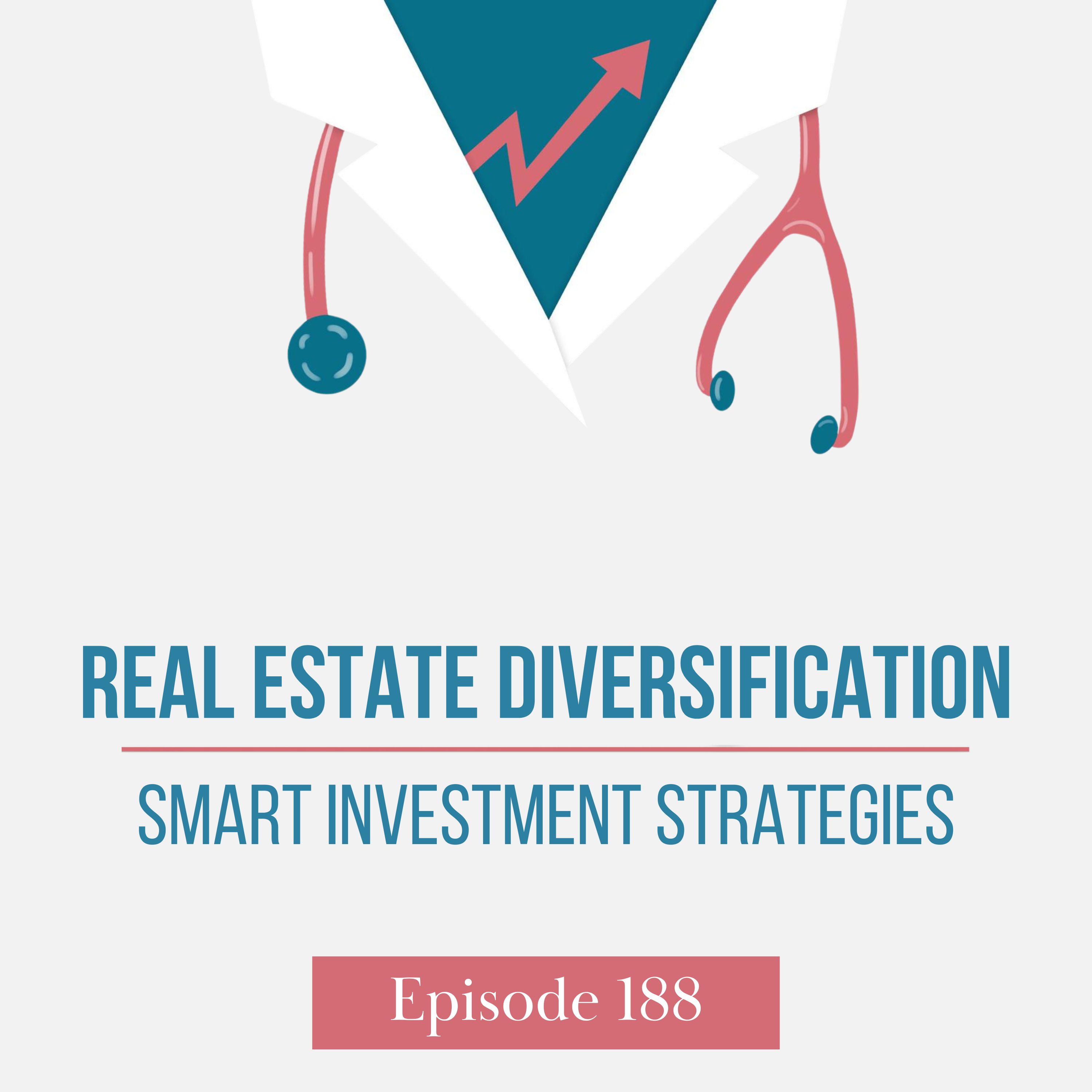Episode Transcript
Daniel: What's up guys. Hope you're doing well. I am going to be talking about a little bit more. Of, academic, or maybe technical based topic today than what we've done in the past. And the topic is actually based on, a question that I saw on the internet recently that I wanted to kind of unpack. And I think it's a pretty common one we see with working with physician families.
And so we're going to, and the question was around home decision and, You know, drawing the line of house poor. And so we're going to talk through that today, but before we get into that, I just wanted to throw out there a couple of things, first of all, I'm going to start covering a little bit more, shows like this.
I don't know. We'll, we'll probably sprinkle some of these in, maybe start to do, at least a few for the next, few weeks. and just to kind of try that out. so we'll be pulling some questions either from forums or from clients, that have come up in our work, but also I think more importantly, I would love it if you have questions on your mind, if you could just reach out to me, send me an email.
it's Daniel at finance for physicians. co. So definitely send me an email if you have a question, and we can, and we'll keep it anonymous, and, and we can unpack that question and talk about it in a show. so it'd be great if, if you, if you guys could throw out some questions and we'll, we'll start to cover those topics as well.
so that's, that's something we're going to be doing. I wanted to throw that out there. the second thing I was going to mention, so this topic is really interesting. guess this happens a lot with the internet world. but I didn't really see, anyone on these forums. There's a ton of comments, but like, in my view, nobody actually gave great advice, which is kind of interesting.
I guess they're not like all in the business of. Giving advice, or they're kind of given some quick hitters. and there's not a lot of information to be able to do that, but there's a lot of bad advice for sure. and so I'll, I'll kind of talk through some of that as well. So you have to be, I think the takeaway there, at least, generally speaking is you gotta be careful what you, take from the internet.
Um, it's typically not the best advice, even though I think a lot of it's well meaning. So the question, I'll link to this in the show notes. It was on Reddit. It was on the white coat investor, Reddit. it's also, I think in the white coat investor forums. but I'll paraphrase the question.
And linked to the full forum in the, show notes. But basically it's someone, in radiology that's in practice, just started in practice and has had a big income increase, but hasn't yet gotten accustomed to that. he's married and live, they live in a high cost living area, Southern California. and so his, wife's family is from there.
So it's kind of like non negotiable that they. continue to live there and despite the very high cost of living, real estate, super expensive in Southern California. I'm sure if you guys, if any of you that live there know that, but, living there is kind of like non negotiable. they're going to live there no matter what, because family and.
I think she grew up there. So financial information, they have a income. His wife's income is 130. His income is 450, but it's supposedly going to go up to like five 60. and then he has his second, I guess it's a side gig. he said pay per click. I don't know what that is. maybe it's like a, I don't know, 150, 000 in his side gig.
Um, and then student loans, his wife has 165 in student loans. So, He is throwing out this idea, like, well, what if they were to buy, cause they're going to stay in the area a long time, they plan to have a couple of kids at least, so they would like to have like a pretty decent size house. And in their area, that's going to be at least, you know, in the 1.
5 million type range. and that sounds low to me, but, um, you know, they live there. So we'll go with those numbers and the interest rates are high now. Like I think he used 7 percent interest rate and his math is that it's like 10, 000 a month. And that sounds kind of in the ballpark for just the mortgage.
so 10, 000 a month for the mortgage. and at that income level, he's like, is that pushing it too hard? Like he's referenced some rules of thumb. Like I think he talks about this two times salary rule of thumb, which is a common one that people throw out. and so. He feels like he would fall pretty closer within that rule of thumb, but it sounds like an insane amount to spend.
and he's wondering if it's a wise decision to even look in that sort of price range. So, the internet, has lots of opinions, like always. And I think like, there's a ton of comments, but I think the general consensus is like, especially on the Reddit forum, they're like. What are you talking about?
Of course, you can afford that. that sounds way too low and like, there's a little bit of like shaming going on kind of too. It's like, You should learn financial literacy. Somebody said you should learn financial literacy because like that's insane that you would even ask this question.
And then another person's like, this sounds more like a brag, which I mean, I guess it could be, but that sounds like a weird way to brag. I mean, I don't on the internet to like, I don't know, maybe people do that, but that sounds a little nuts. So, basically the consensus is like, of course you can find that or, uh, for that house you're making.
You know, your household income easily would the math work. So, I think that is bad advice, not because they can't afford the house necessarily, but I think it's bad advice. First of all, it's like the shame is not helpful. I don't think, I mean, that, that's no good.
That makes people not want to, bring up questions in the future. That's why people don't like talking about money. And so that's, that's pretty stupid. I don't like seeing that, but the advice that like, of course you can afford it, it's bad advice. I think because there's not near enough information.
And so what I mean by that, there's a bunch of missing pieces here and I don't, I didn't see anybody like bringing that up, but like, to me, they're missing like the most important information to be able to get a good game plan together. So I'll throw out some of these missing pieces of information and then circle back on like what I would typically.
advice in some various situations. So a big one that stuck out to me is like, how much are you actually working like hours, per week or whatever, especially cause the side gig thing came up, and then what is the compensation structure with that? Like, is there some like RVU stuff going on? how would guaranteed is your income?
Like. How much of it is, is there a guarantee for a period? And then you switch to RVU. because what I'm looking for is like, how secure is your income stream and how like committed are you with your hours? And the reason that's super important in this kind of decision is because if you're like way, way committed, like you're working 80 hours a week, for instance.
And you're working in a situation that has very, flexible or in, like RVU based if it's all RVU based. So it's not guaranteed. So if it's all RVU based or you're like an independent contractor or something, and you're working 80 hours a week on top of that, that's like a very, very. You basically have the gas pushed as hard as you possibly can.
And you're probably like at risk of having a big, huge wreck. and that I wouldn't want to, to me, that's a big deal when I'm about to spend a million and a half on a house. Like. is there some risk here because that is like the gasoline that funds like this whole house thing, like this guy, it doesn't sound like this guy's an independently wealthy yet, given that they have student loans.
Now that's another question, like how much wealth do you already have, but like, I'm going to assume. based on the fact that they're paying on a student loan that they're not yet independently wealthy and the fact that they just are getting in practice. So in that situation, you are very dependent on that income to be able to pay for the house.
And the more you spend, the more you're kind of locked in or, you know, we call it the golden handcuffs. You're like locked down on that job. So if you're really cranking already on the work front. and you're in this very, unsecure sort of setup. I would be much more hesitant spending on the higher end.
And I would be like, let's explore that issue first. If you're pushing the gas too hard, maybe, cause we want to know what a reasonable balance is. Cause I would rather see someone like, let's make sure you're at like a long, sustainable level of works. income slash hours, when we're talking about the big decision like this.
So for all I know, this guy could already be working 80 hours a week. And so he could be at the max, max ceiling of his earning potential. And that I don't think you should plan with those numbers. I would be like, well, what's your like sustainable for 20, 30 years sort of level, and we need to use those numbers instead.
Uh, so that's a big deal that's missing. So I don't even know. That's such a big, important factor that it's hard to know. You know, where to start


